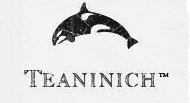Teaninich distillery information
Founded by Captain Hugh Munro in 1817, the Teaninich distillery was built on the estate of the same name in Munro country in the Highlands, some 30 kilometers North of Invernees, and about the same south of Dalmore. The area was known as Ferindonald, or “Donald’s land”. Teaninich name is derived from the Gaelic expression “Taigh an Aonaich”, which translates into “The house on the hill”. Establishing the distillery was an attempt to get rid of the illicit distilling that had been common to the area.
In 1830, Captain Munroe sold the estate and distillery to his younger brother General John Munro. When the General had to leave for India, he leased the distillery to Robert Pattieson in 1950, and later to John McGilchrist Ross in 1869. By 1895, Ross didn’t renew his contract, instead option to found his own distillery at Glenskiach. The distillery became owned by a partnership between John Munro and Robert Innes Cameron in 1898. A refurbishment of the distillery took place in 1899, extending the distillery at the same time. In 1904, Cameron (a spirits merchant and whisky broker from Elgin, who also was a shareholder at Benrinnes, Linkwood and Tamdhu) became the sole owner of Teaninich. He remained at the helm until his death in 1932.
In 1933, Scottish Malt Distillers Ltd (SMD) purchased Teaninich from Camerons’ trustees. The distillery was forced to close due to barley shortages from 1939 to 1946. Upon reopening, two small stills were removed. In 1962, the stillhouse was reconstructed, and the amount of stills doubled from two to four. The stills were converted to steam heating around the same time. In 1970, a completely new stillhouse (The so-called “A side”) was added, containing six additional stills. In 1973, the old facilities containing the milning, mashing, and fermentation part as well as the original four stills (The “B Side”) were rebuilt, and a dark grains plant (for recycling distillation byproducts into cattle feed) was added a year later in 1975.
The “B side” part of Teaninich was mothballed in 1984, following the crisis of the early 1980s. The “A side” followed in 1985, with the distillery closing down. In 1991, United Distillers & Vintners (UDV), the successor of SMD reopened the A side, though the B side remained closed, and the stillroom of it was eventually completely decommissioned in 1999. Diageo (itself the successor of UDV) announced a planned investment of 12 million pounds for upgrading Teaninich.
Teaninich whisky
Teaninich does not have a mash tun, but rather uses a Meura Filter press, where the mash is squeezed between cloth plates that are squeezed together, after which the wort is collected, the draff removed, and the process repeated. IT’s a typical setup in breweries but Teaninich is the only whisky distillery to use this device.
Most whisky produced at Teaninich goes straight into blends, particularly Johnnie Walker red- and black label. However, a few bottlings have been released:
- Flora & Fauna, 10 Years Old (Released in 1992)
- Rare Malts 23 Years Old (Released in 1995)
- Rare Malts 23 Years Old (Released in 1996)
- Rare Malts 27 Years Old (Released in 1999)
- Manager’s Choice, 13 Years Old (Released in 2009)
Distillery info:
| Name | Teaninich |
| Region | Highland |
| Logo |  |
| Status | Active |
| Founded | 1817 |
| Water source | Dairywell Spring |
| Owned by | Diageo |
| Address |
Teaninich Distillery +44 (0) 1349 885001 |
| Visitor centre | No |
| Website | N/A |
| N/A | |
| N/A | |
| Community | N/A |
| Map |
Distillery Setup:
Component |
Capacity |
Quantity |
|---|---|---|
| Mash tun | 4 tonnes | 1 (Stainless steel mash conversion vessel, rather than a mash tun) |
| Washback | 60,000 litres | 8 (Oregon pine) |
| Wash still | 16,500 litres | 3 |
| Spirit Still | 15,600 litres | 3 |
| Expected yearly output in LPA (Litres of pure alcohol) | 4,000,000 |